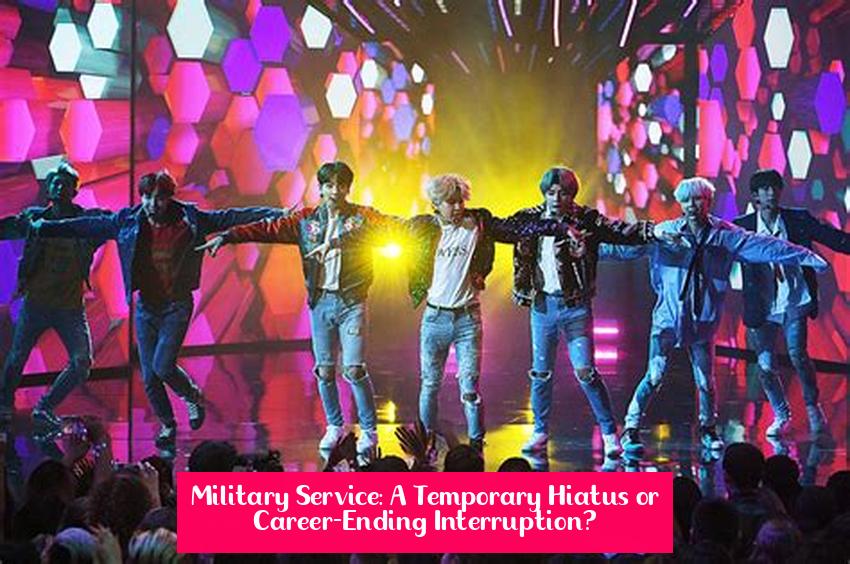Ever wondered how long your favorite K-pop idols can last in the cutthroat world of Korean entertainment? From the infamous seven-year curse to mandatory military service, the journey of K-pop stars is a rollercoaster of talent, fame, and sacrifice. Join us as we unravel the secrets behind the longevity of K-pop idols and explore the delicate balance between passion, sacrifice, and the pursuit of everlasting stardom.
Key Takeaways
- K-pop idols typically sign contracts that last for seven years, as determined by the Fair Trade Commission.
- If a K-pop group remains popular, its members usually renew their contracts, but if not, the group may disband.
- Most K-pop idols debut at a young age, usually between 15-18, and retire at the age of 30 or younger.
- South Korean men must fulfill their military service for at least two years once they reach the age of 28, with special exceptions for athletes and musicians who win international competitions.
- The “seven-year curse” in K-pop refers to the dissolution of groups or the departure of a member after seven years of activity, often leading to solo careers or different paths for the members.
- There is anticipation and uncertainty surrounding the renewal of contracts for K-pop groups, as the typical contract lasts for seven years.
How Long Can K-Pop Idols Last?
Reading List: How Long Does a K-Pop Comeback Last? Exploring the Promotional Cycle and Its Impact
K-Pop, a vibrant and dynamic music genre, has captivated audiences worldwide with its catchy melodies, synchronized choreography, and charismatic performers. However, behind the glitz and glamour of the K-Pop industry lies a system that often places strictures on the longevity of an idol’s career. This article delves into the factors that determine the lifespan of K-Pop idols, examining the industry’s unique contract system, military service obligations, and the challenges of maintaining popularity in a highly competitive market.
Now Trending — Understanding Lee Hwan Hee’s Departure from Boys Planet: Health Concerns, Fan Support, and Future Plans
The Seven-Year Contract: A Double-Edged Sword
The K-Pop industry operates on a distinctive contract system that typically binds idols to their management companies for seven years. This extended commitment has its advantages. It provides idols with stability, training, and the opportunity to develop their skills. However, the seven-year contract also raises concerns about creative control, personal freedom, and the potential exploitation of young artists.
Key Takeaway: The seven-year contract is a defining feature of the K-Pop industry, offering stability and opportunities for growth while also raising concerns about creative control and personal freedom.
Military Service: A Temporary Hiatus or Career-Ending Interruption?

In South Korea, male K-Pop idols are obligated to fulfill their mandatory military service for at least two years once they reach the age of 28. While some exceptions exist for athletes and musicians who achieve international recognition, most idols must temporarily put their careers on hold to serve their country. This interruption can significantly impact an idol’s momentum and popularity, potentially affecting their long-term career prospects.
Key Takeaway: Mandatory military service poses a significant challenge for male K-Pop idols, potentially disrupting their careers and affecting their long-term success.
The Relentless Pursuit of Popularity: A Fleeting Commodity
The K-Pop industry is fiercely competitive, with numerous talented idols vying for attention and success. Maintaining popularity in such a saturated market is an ongoing struggle, requiring idols to consistently deliver high-quality music, captivating performances, and engaging content. The pressure to remain relevant can be immense, leading to burnout, mental health issues, and, in some cases, the decision to leave the industry altogether.
Key Takeaway: Sustaining popularity in the K-Pop industry is a formidable challenge, demanding relentless effort, creativity, and resilience from idols.
Breaking the Seven-Year Curse: A New Chapter or the End of an Era?
The “seven-year curse” is a term often used in the K-Pop industry to describe the phenomenon of groups disbanding or members departing after approximately seven years of activity. While some groups manage to overcome this hurdle and renew their contracts, others find it difficult to maintain their initial success and momentum. The seven-year curse highlights the transient nature of K-Pop careers and the challenges idols face in sustaining their popularity over the long term.
Key Takeaway: The “seven-year curse” symbolizes the precarious nature of K-Pop careers, with many groups facing the risk of disbandment or member departures after seven years.
Conclusion: A Delicate Balance Between Passion, Sacrifice, and Longevity
The lifespan of a K-Pop idol is influenced by a complex interplay of factors, including contract terms, military service obligations, the relentless pursuit of popularity, and the ever-present “seven-year curse.” Navigating these challenges requires resilience, adaptability, and a unwavering passion for music. While the K-Pop industry can be demanding and unforgiving, it also offers immense opportunities for growth, creativity, and global recognition. Ultimately, the longevity of a K-Pop idol depends on their ability to strike a delicate balance between passion, sacrifice, and the pursuit of long-term success.
Don’t Miss – Can a 12-Year-Old Become a K-Pop Idol? Age Requirements, Training, and Success Stories
How long do K-pop idols last?
If the group remains popular, its members usually renew their contracts. But if not, the group may disband. The exact reason for the seven-year limit is unknown. In 2009, the Fair Trade Commission announced its plan to create a standard contract with a validity period of less than seven years.
At what age do K-pop idols retire?
The crucial fact about the K-pop industry is that most idols debut at age anywhere from 15–18, but they retire at the age of 30 or less at most times.
How long do K-pop idols have to serve?
ICYDK, it’s mandated by the government that South Korean men must fulfill their military service for at least two years once they reach the age of 28 (with special exceptions for Korean athletes and classical musicians who win international competitions).
What is the K-pop 7 year curse?
As idols reach the end of their contracts, it is not unusual for certain members to opt for a solo career – or a different path entirely. This often results in the dissolution of groups or the departure of a member after seven years of activity – hence the seven-year curse.
How long do K-pop contracts last?
Usually, contracts with the respective music companies last for seven years, which is the standard determined by the Fair Trade Commission.







